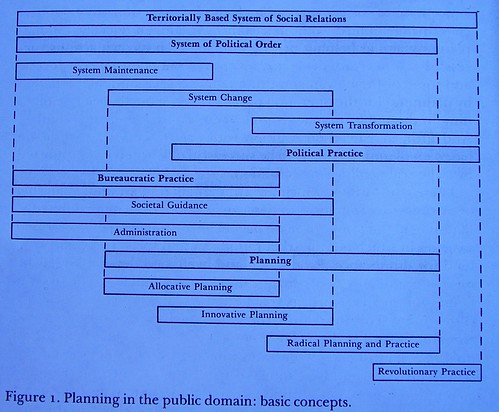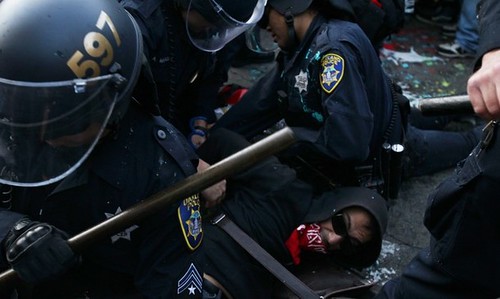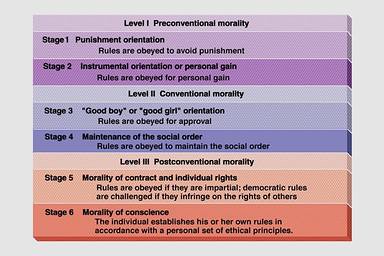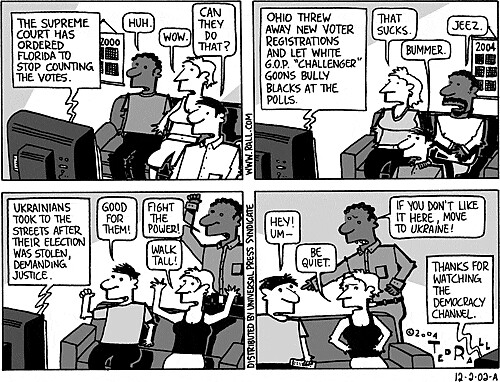John Friedmann's
Planning in the Public Domain is an interesting book because he outlines how to do "radical" planning in the context of existing system of government and political action. He distinguishes radical from "revolutionary" planning, as the latter challenges the precepts and existence of the political system.
Government, especially the police/coercive power of the state function, is focused on system maintenance.
An "Occupy Wall Street" demonstrator is arrested during a demonstration in response to an early morning police raid which displaced Occupy Oakland's tent city in Oakland, California October 25, 2011. REUTERS/Stephen Lam.
Protest, such as the Occupy Wall Street movement, in places including Oakland, California ("
Ousted protestors marching back to Frank Ogawa Plaza" from the
Oakland Tribune), Chicago, Illinois, Richmond, Virginia, Atlanta ("
Atlanta police clear protesters from Woodruff Park" from the
Atlanta Journal-Constitution), and New York City, has been challenged in terms of the ability to stay overnight--24/7 protest, to the extent where in Oakland, people were driven out by tear gas.
Focusing on the "rules"--parks are closed at night, etc.--is a classic bureaucratic perspective towards maintaining the system, rather than allowing for flexible spaces where challenge can be accommodated.
In college I was very much interested in cognitive, affective, and moral development theory. The "police function" of government is very much a function of
Kohlberg's stage 4, with the focus on following the rules and maintaining social order. So the police oriented reaction is not a surprise.
Although it's ironic, given the support of political elites for challenges to government overseas, such as the Arab Spring movement.
This Ted Rall editorial cartoon from 2004 is still apt today.
Labels: civic engagement, civil rights, freedom of assembly/First Amendment, participatory democracy and empowered participation, policing, progressive urban political agenda, protest and advocacy







1 Comments:
This post is a great resource for so many blog things. Thanks for the info.
Post a Comment
<< Home